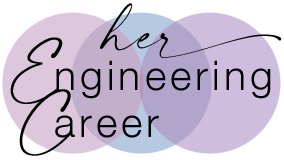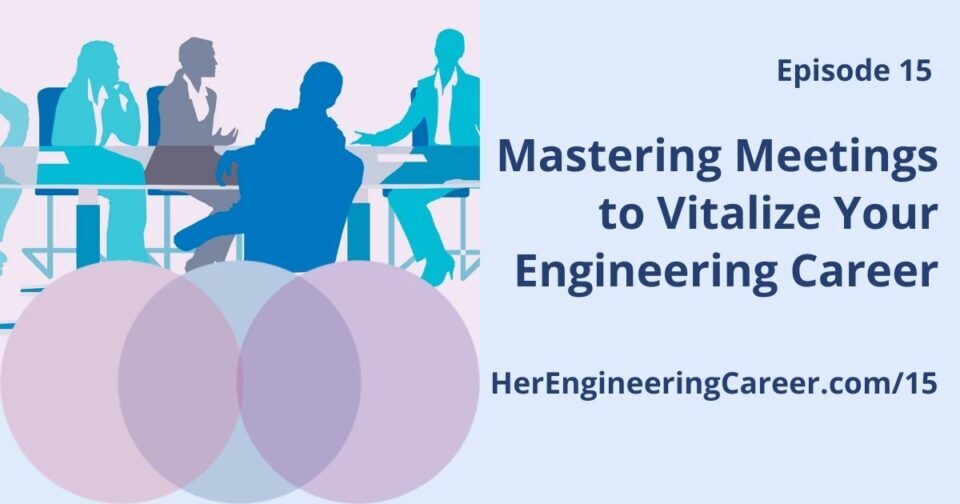Show Notes
Following up the masterful meetings discussion of our last episode – where we talked about leading meetings – today’s discussion is about attending meetings.
This episode will inspire you to reframe your attitude about attending meetings. If you dread meetings because you’re unclear about your role or because your experience is that they’re a waste of time, here is another way to look at it and make meetings work for you.
Sometimes it seems like our careers are just a series of meetings. Sometimes it seems like we can’t make a move without a meeting. We have meetings every day for every project. They are such a large part of all we do.
Meetings are a form of communication in which people gather and interact in real time. They usually involve a face-to-face format (or at least virtual F2F). Audio or phone format is also sometimes used.
There’s usually a compelling reason why an actual meeting is needed – why the objective cannot be accomplished another way. For example,
- when there are complex issues that need to be addressed and it’s essential to have participative discussion,
- when the message to be conveyed requires deep or wide understanding on the part of attendees,
- when an announcement of significant change needs community buy-in, or
- when pressing decisions require feedback in a short time frame.
The reasons we have meetings are: to share information, gain understanding, get people on the same page, teach and learn, ideate, solve problems, brainstorm, meet people…in whatever way, ensure the mission gets accomplished.
But there are a lot of things we don’t like about meetings:
- They take up too much time.
- I can’t get my real work done.
- They don’t offer any payback for me.
- I don’t know why I need to be there.
- They make me anxious. It’s hard to speak up and be heard.
- So many meetings are poorly organized and don’t seem to accomplish much.
We do a lot of complaining about meetings. But there is a way to use them as a tool to vitalize your career.
Meetings as Vital Career Tools for Women Engineers
Since meetings are so much a part of our jobs and careers it’s worth taking a look at how we can leverage them to benefit us. Whether you’re already a meeting master or you’re relatively new to your engineering job, you can probably use a few fresh ideas.
Here are my 5 recommendations on how to make meetings a vital career tool:
- Determine if you should attend.
If you’re a mid-to-late career engineer, first ask yourself: Do I need to go to this meeting? Make sure it’s important enough and contributes to your goals. If the answer is no or you simply can’t fit it into your schedule, you have other options. You can
- push back or suggest another format if you think there’s no need for a meeting in the first place.
- send a representative – someone to take your place at the meeting.
- attend part of the meeting, or skip it altogether, and learn the outcome later from the meeting leader or someone who attended.
If you’re an early-to-mid career engineer, it’s going to be more worth your while to attend more of these meetings because you’re still coming up a learning curve. Assume that, if you’re invited, you probably should be there.
- Be prepared.
Any meeting will be more beneficial if you come prepared. If you take a few minutes to read over the meeting information, learn the purpose and the objective, and understand your role, the meeting will be much more meaningful to you.
If you’re an early career engineer, and your role in the meeting is not clear to you, ask the meeting leader or your boss to explain it. If you’re brand new to the organization, you may also want to ask about meeting norms and etiquette.
- Get something out of it.
This is the key. For every meeting ask yourself, What’s in it for me? Know why you’re there. The meeting organizer has a reason for you to be there, but also determine what you want to get from the meeting. This is a way of leveraging the meeting to help you in your job and career.
You’re there to help accomplish the objective, but how you participate may allow you to get more out of the meeting. For example, if you’re an early career engineer, you might be able to meet new people and learn who to collaborate with in your own work.
If you’re a mid-to-late career engineer, you might be able to share your insights and expertise or help make synergistic connections with other initiatives you’re working on in the organization.
These are examples of how you can reframe meetings to help make them more worthwhile for you.
- Play your role.
Both with respect to your job position and with respect to the meeting objective, strive to play your role. Represent where you work and what you know.
Even as an early career engineer, you have a perspective and opinions. If you’re later in your career, don’t assume others know as much as you do. Share your insights and experiences.
You can also play a role in support of the meeting leader. Help out by supporting the objective and the agenda. This is a simple act of respect and professionalism. (Both of which tend to pay you back in the future.)
- Participate.
Beyond playing your role, participation in the meeting facilitates more effective outcomes. It means speaking up and joining in the discussion to accomplish the meeting objective.
It means following meeting norms for balanced discussion and consideration of ideas. It means contributing authentically and giving constructive feedback from your perspective.
Even in meetings where no one seems to want to participate, you are there anyway. So why not get something out of it? If you play your role and participate, in my experience, two things happen: 1) others follow your example, and 2) the meeting is more worthwhile for everyone.
Tip: Speak up early in the meeting.
This is a great tip for you if you’re anxious about participating. If you say nothing for most of a meeting, you tend to say nothing for all of the meeting. Whereas, if you speak up early, you tend to be more engaged, and people tend to embrace your engagement.
By speaking up early you set the stage so that the next time you say something it’s much easier. Try that tip and let me know how it works for you.
I know that if you follow these recommendations, you will get more out of every meeting you attend. You don’t have any control over how the meeting is run, whether or not it goes overtime, or even if the objective is accomplished.
But you do have control over your approach to attending. You do have control over your perspective and attitude. And by using this to your advantage, every one of your meetings will be more useful to you and your engineering career.
Recap: This episode is about mastering meetings, but this time from your perspective as a meeting attendee. We talked about the importance of meetings and what we don’t like about them.
Then I presented my 5 recommendations for how women engineers can change their perception and turn meetings into vital career tools.
Next time on Her Engineering Career Podcast we’ll begin a series that explores some top challenges for women engineers, starting with why too many women leave engineering. You won’t want to miss Episode 16.

